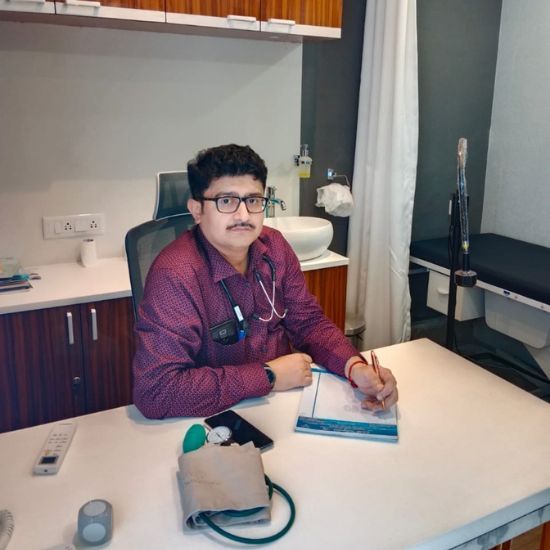When it comes to our health, understanding the different types of doctors is crucial. While Urologists and Andrologists deal with male health, there’s still a difference between Urologists and Andrologist.
In this article, we will explore what sets the two professionals apart and how knowing the difference can aid you in getting the right care.
Who Is A Urologist?
A Urologist specializes in male reproductive organs and the urinary system. They treat issues in the kidney, bladder and urethra. For men, they also address prostate and testicular problems. Urologists see patients of all ages, including children.
Education And Training Of Urologists
To become a Urologist, a doctor has to go to medical school first. This course generally runs for four years. After medical school, Urologists spend 5-6 years training in Urology. Urologists then become board-certified only after passing extra exams. This is required to ensure credibility.
Conditions Treated By Urologists
Urologists deal with a lot of different medical issues like:
UTIs
UTIs are also known as Urinary Tract Infections. They happen in parts of the body that help in removing urine. They cause pain, a strong urge to pee and a burning sensation in the area.
Kidney Stones
Kidney stones are hard pieces that form in the kidneys. They are very painful to pass and cause discomfort in the abdomen or back.
Prostate Problems
Prostate problems include Prostate cancer. It is a serious disease. BPH or Benign Prostate Hyperplasia is the condition when the prostate gets bigger and makes it harder to urinate.
Incontinence
Incontinence refers to not being able to control the urge to pee. This causes accidents and makes it difficult to go out. It gives an uncomfortable feeling to the person who experiences them.
Erectile Dysfunction
This condition is when a man has trouble getting/keeping an erection. While the specialists called Andrologists usually focus on this, the Urologists also help in treating it.
Types Of Procedure Performed By Urologists
Urologists treat a variety of procedures to treat a vast range of conditions. This includes:
- Bladder procedures
- Kidney procedures
- Prostate procedures
- Testicular procedures
- Penile procedures
- Lithotripsy and more
Who Is An Andrologist?
An Andrologist specializes in male reproductive health. They address any present issues related to the male reproductive system. This includes male hormones and sexual health.
Education And Training Of Andrologists
To become an Andrologist, a doctor has to attend medical school first. The course runs for four years in total. Then they are required to complete residency. There the specialists spend 5-6 years training in Internal Medicine and Urology.
There are a lot of AndroloMany Andrologists have to complete an extra training of 1-2 years. Then finally they apply for board certification which establishes them as credible.
Conditions Treated By Andrologists
Andrologists deal with a lot of different medical issues like:
STIs
STIs or Sexually Transmitted Infections are passed from one person to another through sexual contact. Urologists help treat men who have these issues. The symptoms of STI are itching, pain and unusual discharge.
Hormonal Imbalance
A hormonal imbalance means that the levels of hormones in the body like testosterone are not in levels how they are supposed to be. This affects energy, mood and sexual health.
Erectile Dysfunction
This is when a man has difficulty in getting an erection and keeping it firm during intercourse. This is caused by a lot of different factors including health problems, stress and hormonal issues.
Peyronie’s Disease
This refers to a condition where a man’s erection is painful and curves to a side. This makes having intercourse uncomfortable and causes worry about sexual performance.
Infertility
Infertility involves difficulties in conceiving children. In men this indicates having a low sperm count and other issues that make it hard to have a baby with a partner.
Types Of Procedure Performed By Andrologists
Androlgists conduct these procedures:
- Vasectomy
- Prostatectomy
- Circumcision
Differences Between Urologists And Andrologists
Here are a few key differences between Urologist and Andrologist:
Focus Of Care
Urologists treat both men and women for urinary issues. They also treat male reproductive health. They address a wide range of problems including surgical issues.
Andrologists, on the other hand, specialize in male reproductive health and hormone issues. They focus mainly on problems that affect the sexual health of men.
Patient Population
Urologists see patients of all genders and ages for treating urinary problems. Andrologists focus only on male patients and their sexual and reproductive health.
Treatment Methods
Urologists can perform surgeries, prescribe medications and suggest changes in lifestyle for treating urinary issues.
Andrlogists often focus on hormone therapies and treatments to improve male reproductive health.
When To See A Urologist?
-> Blood in your urine
-> Frequent urination or pain when urinating
-> Prostate issues
-> Leaking and incontinence
-> Severe pain in your side or back (indicating kidney stones)
When To See An Andrologist?
-> Concerns about low sperm count and fertility
-> Problems with erectile dysfunction
-> Other sexual health concerns
-> Concerns about low sperm count or fertility
Can Urologists Treat Andrological Issues?
In Conclusion,
Knowing when to see a Urologist and Andrologist can make a huge difference in your health journey. Urologists specifically focus on the Urinary tract and the male reproductive system. While Andrologists specialize in treating male issues like hormonal imbalances and infertility.
For expert care, consider reaching out to Dr. Nilanjan Mitra. He is experienced in both fields and offers personalized treatment plans. Your health is worth the investment – hence do not wait to seek help.


